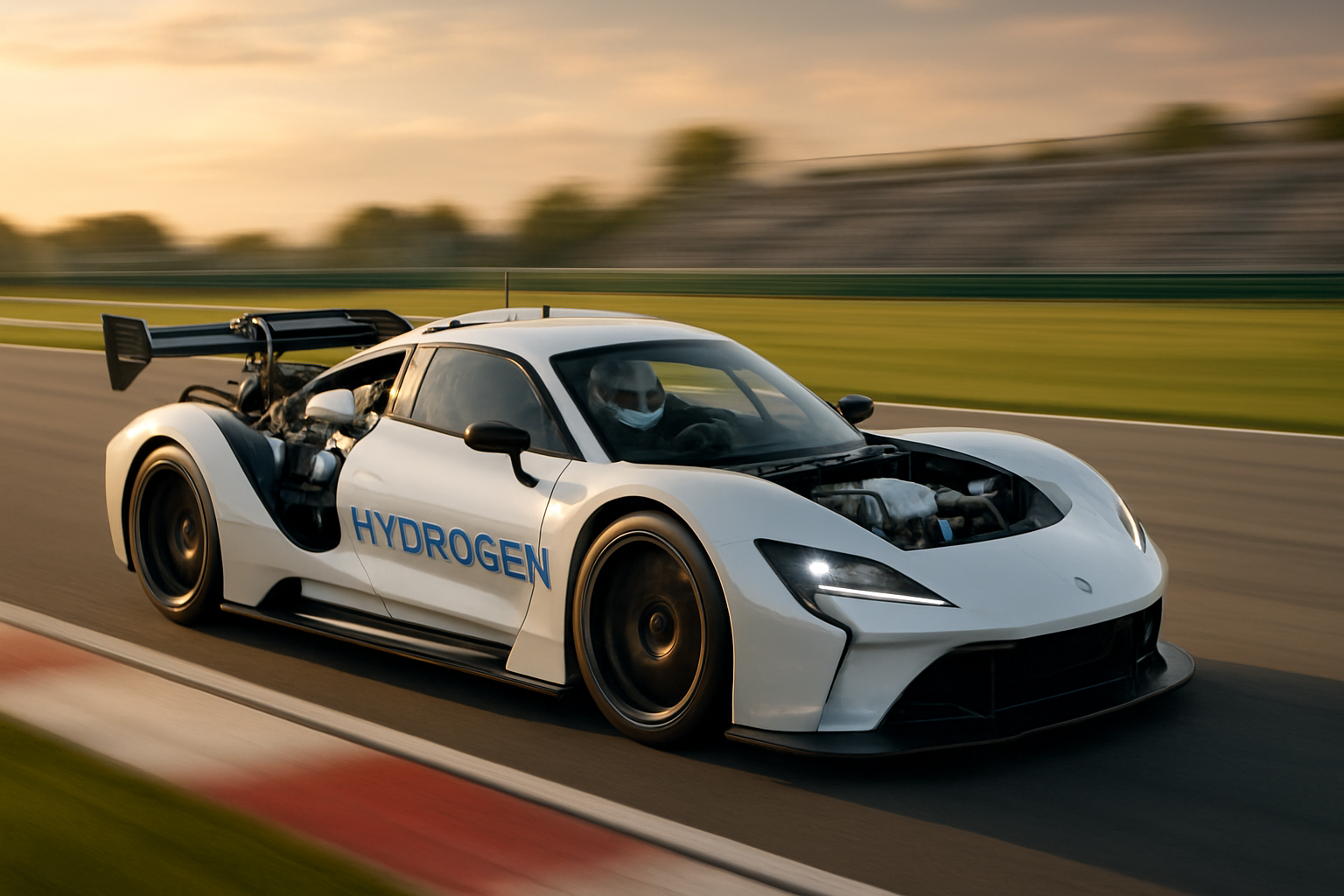Hydrogen-Powered Racing: The Future of Motorsports
The roar of engines, the smell of burning rubber, and the adrenaline rush of high-speed competition have long defined the world of motorsports. But as environmental concerns grow and traditional fossil fuels face scrutiny, a new contender is emerging on the racetrack: hydrogen-powered vehicles. This revolutionary technology promises to maintain the thrill of racing while dramatically reducing emissions. Could hydrogen be the key to preserving the spirit of motorsports in an eco-conscious world?

How Hydrogen Fuel Cells Work in Racing Cars
At the heart of hydrogen-powered racing cars lies the fuel cell technology. These sophisticated devices convert hydrogen and oxygen into electricity, with water vapor as the only byproduct. In a racing context, fuel cells are coupled with high-performance electric motors, creating a powertrain that rivals traditional internal combustion engines in terms of power output and responsiveness. The key advantage is the near-instantaneous torque delivery, which can provide exceptional acceleration out of corners.
Overcoming Technical Hurdles
Implementing hydrogen technology in racing cars presents unique challenges. One of the primary obstacles has been the storage of hydrogen, which requires high-pressure tanks that add weight to the vehicle. Engineers have been working tirelessly to develop lightweight, yet durable storage solutions that can withstand the rigors of competitive racing. Additionally, cooling systems for fuel cells have been refined to maintain optimal operating temperatures during intense racing conditions.
The Impact on Race Strategy
The introduction of hydrogen-powered vehicles is reshaping race strategies. With different refueling requirements and energy management considerations, teams are developing new tactics to maximize performance over race distances. The ability to rapidly refuel hydrogen tanks could potentially eliminate the need for long pit stops, leading to more continuous and exciting on-track action. Moreover, the silent operation of hydrogen fuel cell vehicles is prompting discussions about the auditory experience of motorsports and how it might evolve.
Hydrogen Racing Series and Initiatives
Several racing series dedicated to hydrogen-powered vehicles have emerged in recent years. These competitions serve as crucial testbeds for the technology, pushing the boundaries of what’s possible with hydrogen propulsion. From endurance races that showcase the reliability of fuel cells to sprint formats that highlight their performance capabilities, these series are attracting attention from major automakers and motorsport enthusiasts alike. The development of hydrogen racing is also spurring innovation in refueling infrastructure and safety protocols, which could have far-reaching implications for consumer hydrogen vehicles.
Environmental Benefits and Sustainability
One of the most compelling aspects of hydrogen racing is its potential to dramatically reduce the environmental impact of motorsports. While the production of hydrogen itself can have varying degrees of environmental impact depending on the method used, the on-track emissions are limited to water vapor. This aligns with the growing push for sustainability in all aspects of life, including sports. Racing series that adopt hydrogen technology can position themselves as leaders in environmental stewardship, potentially attracting new sponsors and fans who prioritize eco-friendly initiatives.
Challenges and Criticisms
Despite its promise, hydrogen racing faces several challenges. Critics argue that the overall energy efficiency of hydrogen fuel cells is lower than that of battery electric vehicles when considering the entire production and usage cycle. There are also concerns about the cost and complexity of developing and maintaining hydrogen-powered racing cars, which could limit participation to only the most well-funded teams. Additionally, the lack of widespread hydrogen infrastructure poses logistical challenges for racing series looking to expand their reach.
The Future of Hydrogen in Motorsports
As technology continues to advance, the role of hydrogen in motorsports is likely to grow. Many industry experts predict that hydrogen power could become a significant force in certain racing disciplines, particularly those that require long-distance endurance. The lessons learned from hydrogen racing will undoubtedly influence the development of consumer hydrogen vehicles, potentially accelerating their adoption in the broader automotive market. Furthermore, the unique characteristics of hydrogen powertrains could lead to the creation of entirely new racing formats that showcase the strengths of this technology.
Conclusion
Hydrogen-powered racing represents a fascinating intersection of cutting-edge technology, environmental consciousness, and the timeless appeal of motorsports. As the world grapples with the need to reduce carbon emissions, the racing industry has an opportunity to lead by example, demonstrating that high-performance and sustainability can coexist. While challenges remain, the progress made in hydrogen racing technology is undeniable, and its potential to reshape the future of motorsports is immense. As we look to the horizon, the prospect of seeing and hearing hydrogen-powered vehicles competing at the highest levels of racing is not just exciting—it’s a glimpse into a more sustainable future for the sport we love.




